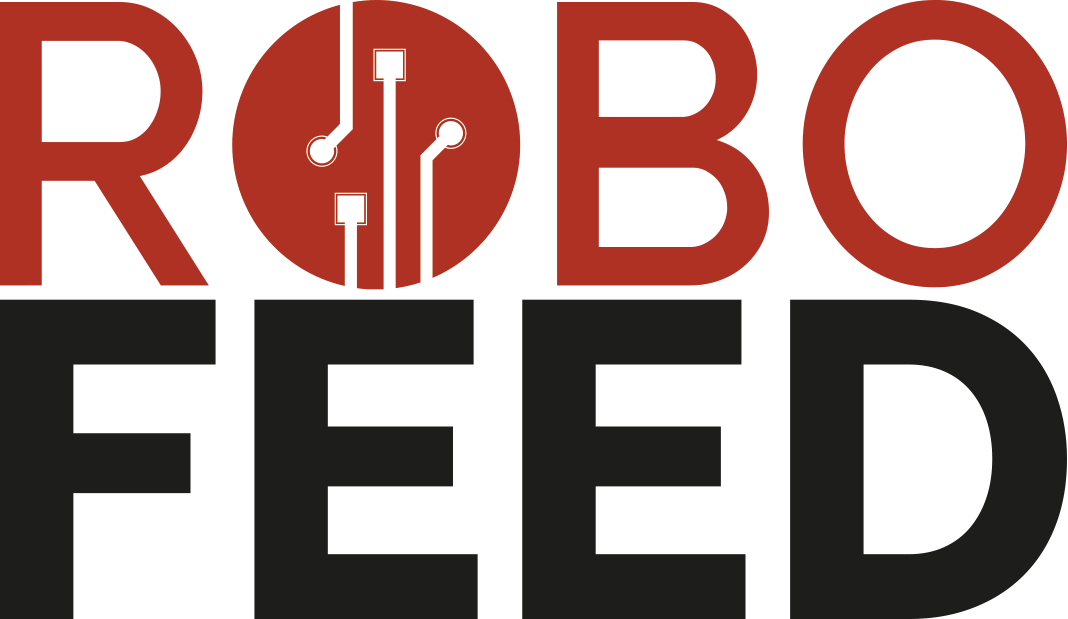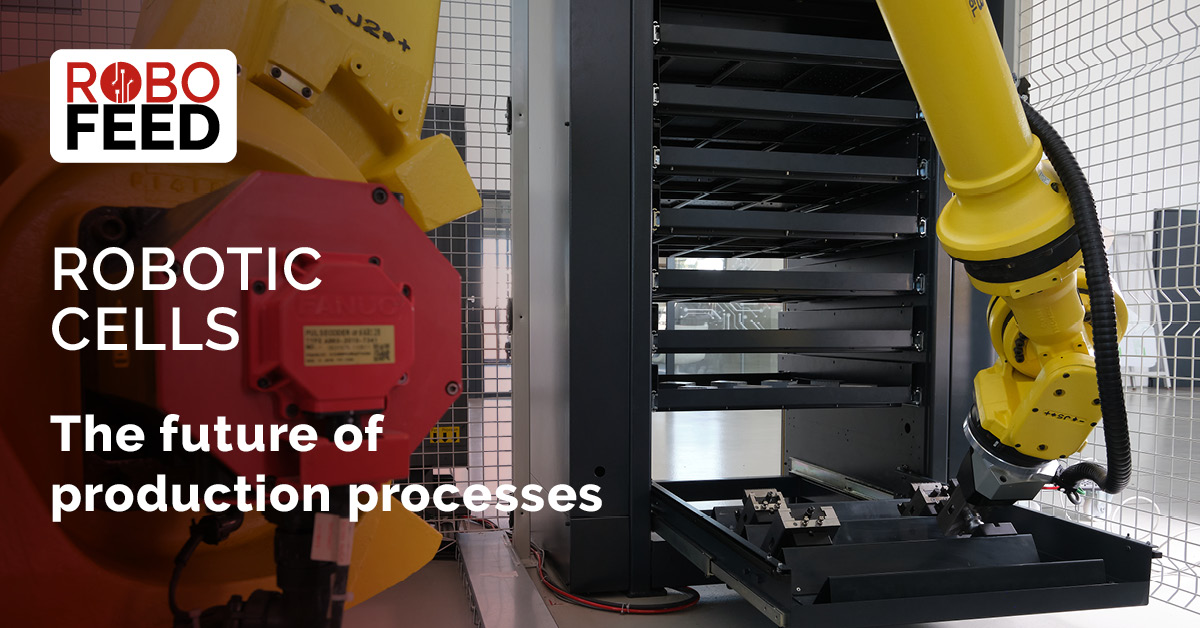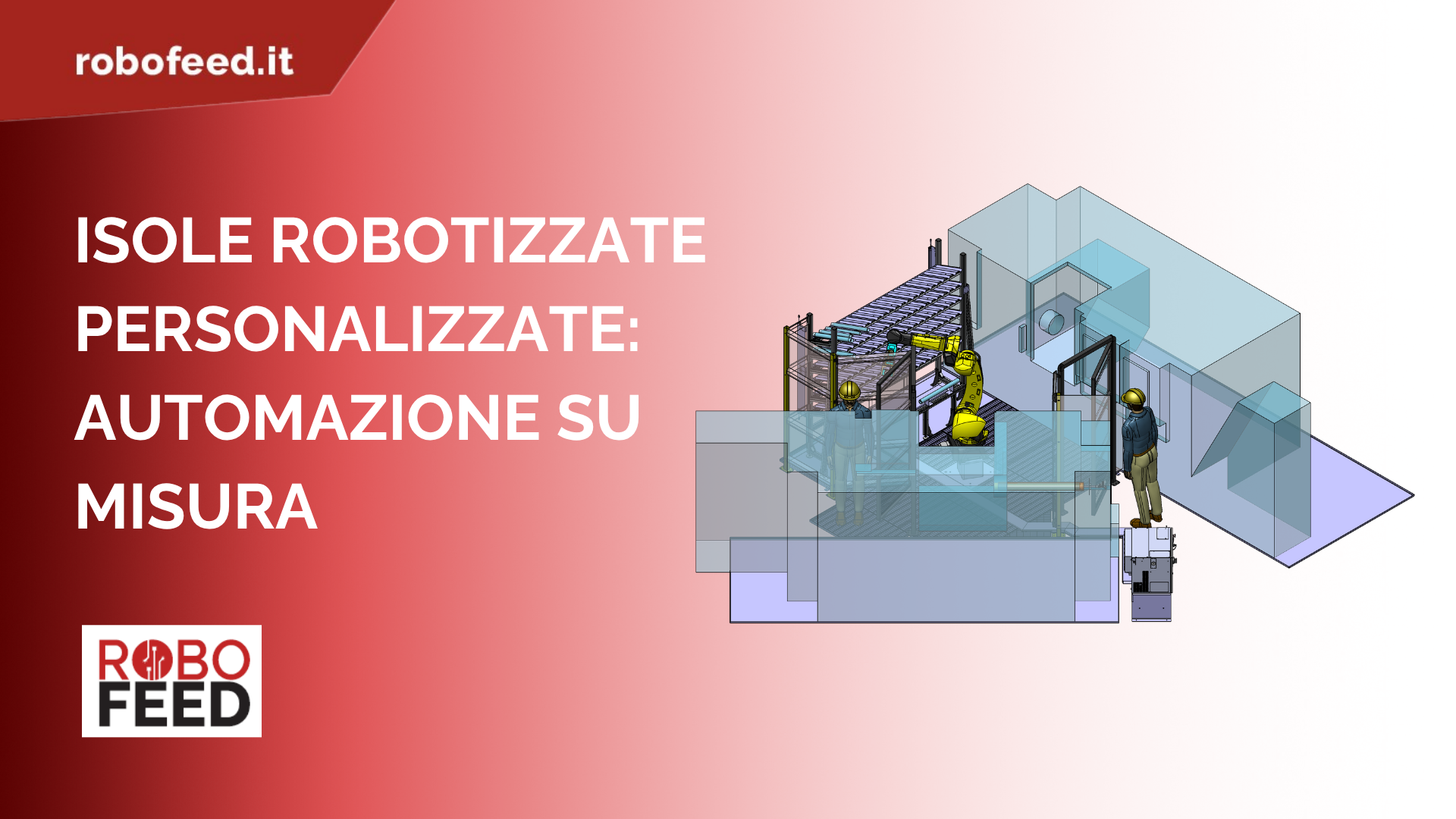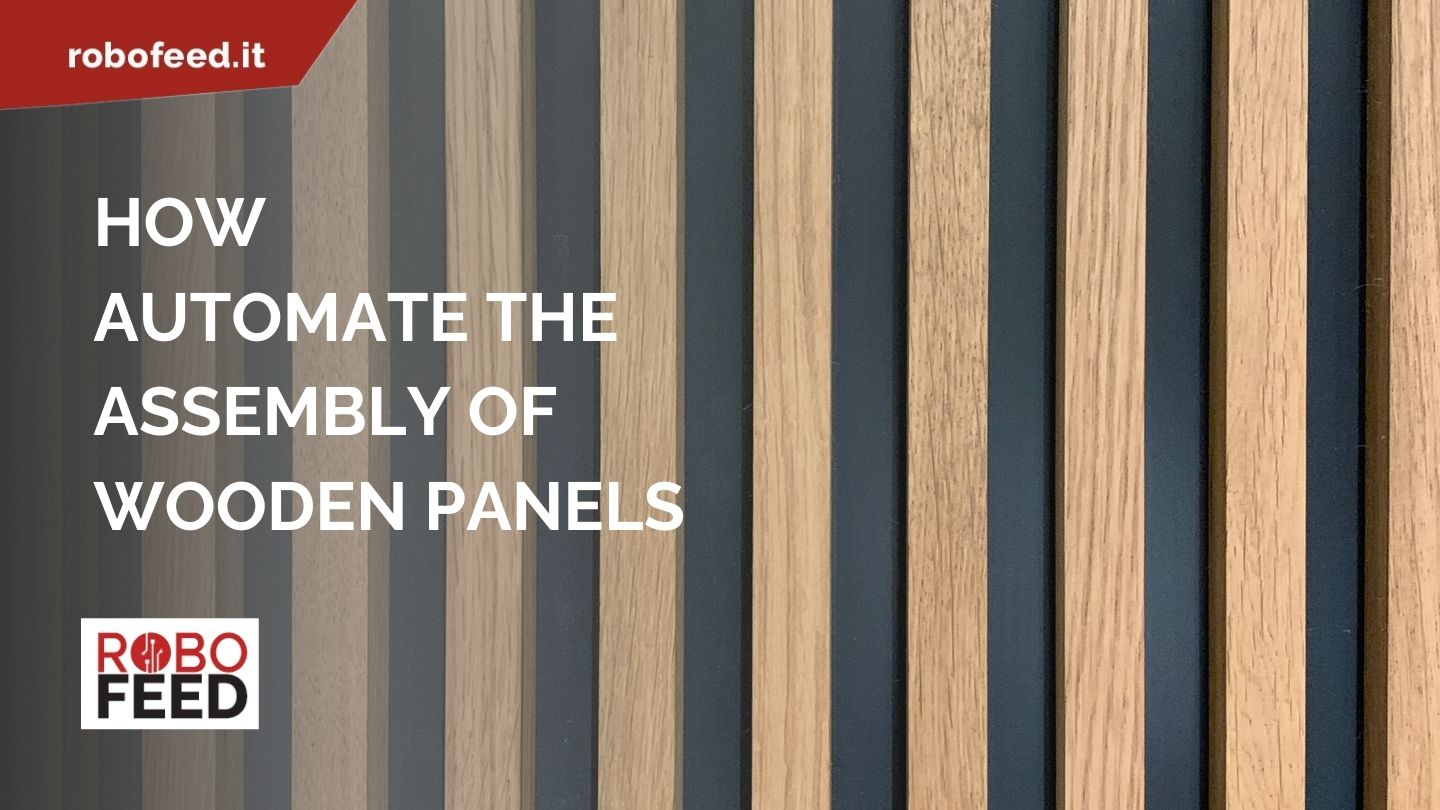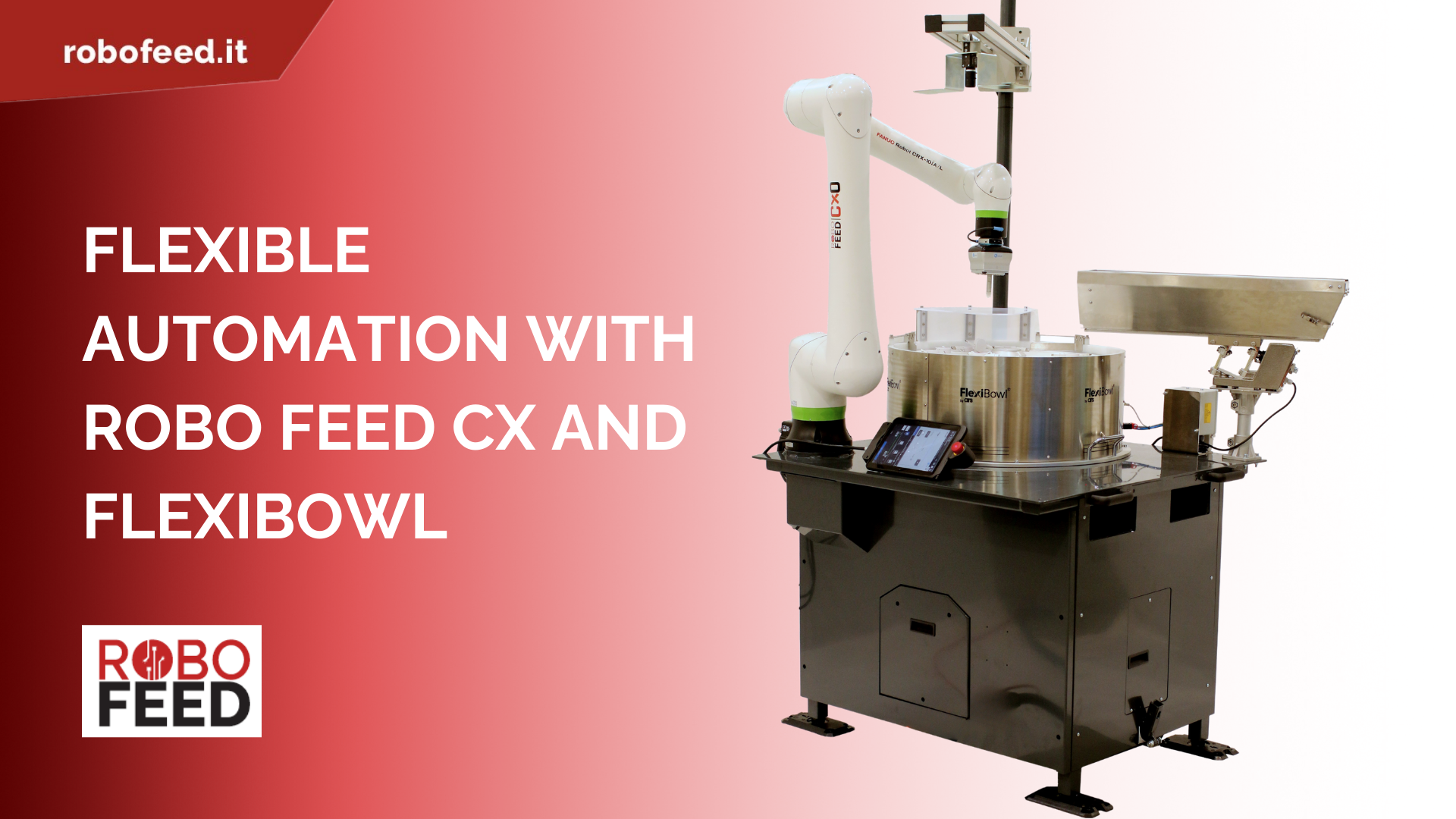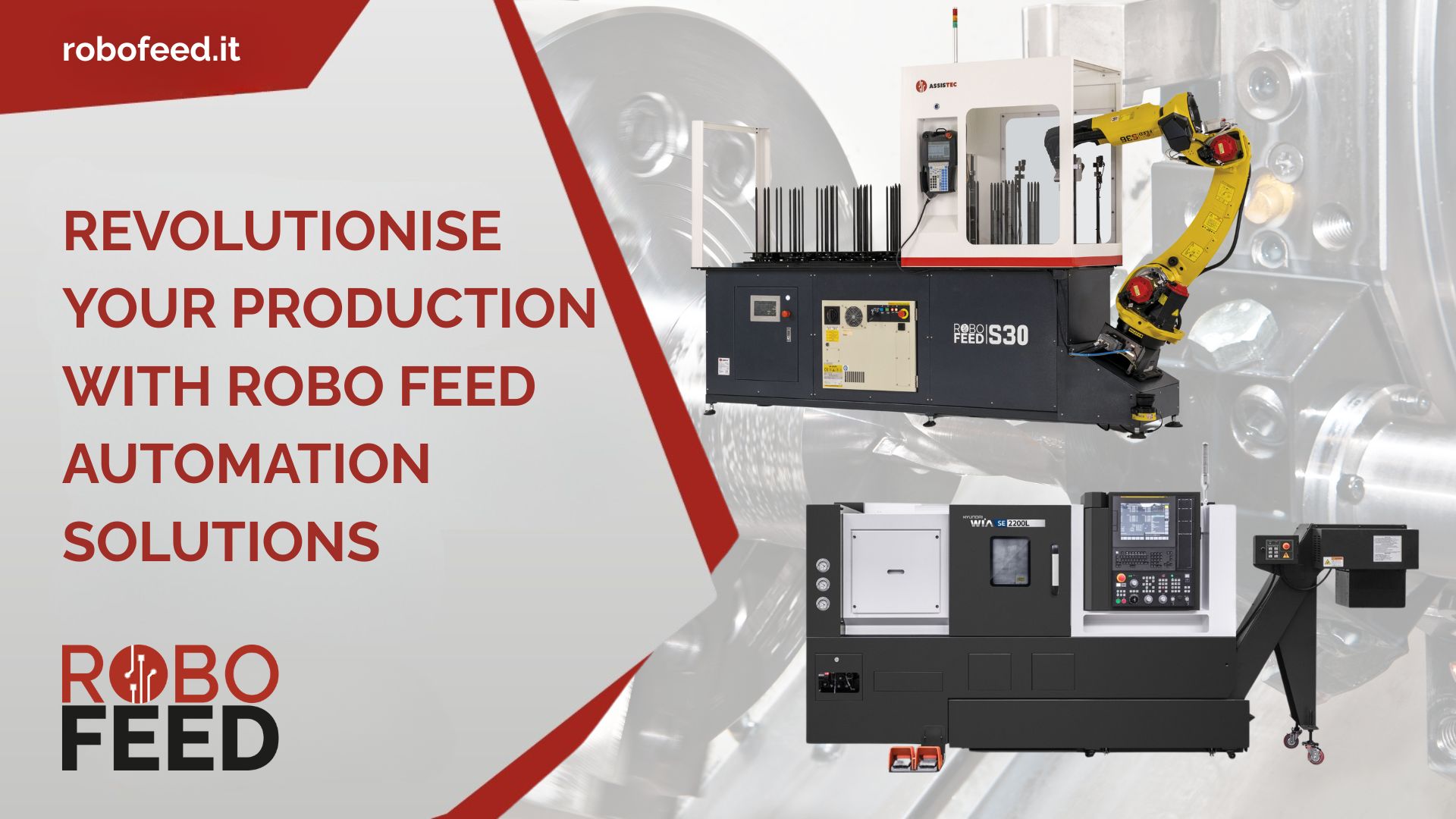What are robotic cells?
Robots were once only found in science fiction stories. They only existed in the pages of speculative magazines or the minds of particularly imaginative filmmakers. Today, with the rise of smart factories and Industry 4.0, robots have become an integral part of our reality and all we do is talk about them. In particular, robotic cells. But what exactly are they? Many entrepreneurs interested in evaluating new technologies to innovate their businesses are also asking themselves the same question. Robotic cells, together with their programmed robots, constitute a complete and independent production module designed to streamline and optimise work processes within a company. Technically speaking, this entails a set of machines configured
within an automatic work cell in which one or more programmable robots are installedThese robots are designed to maximise, speed up and simplify the production cycle, ensuring a consistently high level of product quality automatically. These automation systems significantly impact a company’s expenses and times by accelerating tasks, reducing the level of risk for operators and shortening production shifts.
Robotic cells for servicing machine tools
But robot islands, otherwise known as robotic cells, also have other purposes. For example, they are instrumental in servicing CNC machine tools. During machining operations, when materials like metal or plastic are transformed from a blank into a finished component, CNC machine tools often require the loading and unloading of workpieces. This calls for the integration of anthropomorphic robots or robotic arms to facilitate the operation. Workpiece gripping systems enable these cells to optimise production by executing coordinated and rapid movements. They can also be integrated with 2D or 3D vision systems that allow the robot to quickly identify the pieces to be handled.
Robots in robotic cells: cobots
Another evolution has taken place in the realm of traditional robots: the advent of cobots, representing the frontier of industrial automation. The term “cobot” is derived from the combination of two words – COllaborative and roBOT – and refers to one of the most advanced intelligent automation solutions on the market, capable of merging operational and integrative flexibility In most cases, cobots are significantly smaller and lighter than classic robots. Moreover, they are designed to work together with specialised personnel, ensuring an elevated level of safety for both the operators and the surrounding environment. An additional advantage of cobots is that they do not require the use of protective nets or gates, which are often cumbersome. Cobots are seamlessly integrated with advanced sensors that detect human presence within the work area at risk. If an operator is detected, they will instantly stop operating.
What is the future of industry?
When talking about robots, cobots or industrial automation, it’s clear how profoundly these new technologies have revolutionised our work methods and our understanding of how companies operate. Initially, it was the production departments that were most affected, but with the recent emergence of artificial intelligence (AI), even offices and so-called “white-collar workers” are experiencing a paradigm shift. However, the impact isn’t entirely negative. Similar to robotic systems, the rise of automation consistently paves the way for new roles and sectors. While robots and AI are set to take over many functions, the evolving interaction between humans and machines is driving us toward unprecedented levels of efficiency.
360-degree Automation with Robofeed
While our roots go back more than 25 years, at Assistec, we are constantly looking towards the future. That’s why, after our inception in 1998 and after distinguishing ourselves in electronic and mechanical technical support for machine tools, in recent years, we have channelled our specialised knowledge into a groundbreaking initiative: the birth of Robofeed. This machine offers a wide range of automated “plug-and-play” solutions designed to service CNC machines. An innovation designed entirely in Italy for System Integrators that leverages the unparalleled efficiency and reliability of Fanuc robots.
Do you own a company and want to integrate our robotic solutions to improve your workflow? Contact us or call +39 0522989436 for more information on Robofeed.
